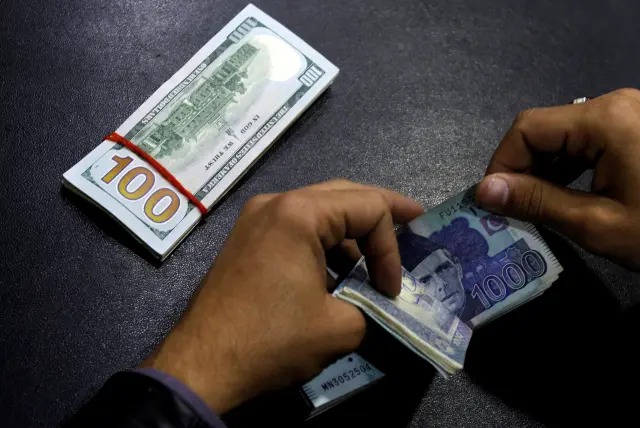ISLAMABAD: After severe crisis faced by the Pakistani rupee (PKR), it has been appreciating for the last two weeks. Experts believe that the exchange rate is moving towards the actual market value.
For the last few months, the PKR had been weakening against the US dollar (USD) due to the economic crisis in Pakistan. After dropping close to the all-time low of Rs239.94 in September, the rupee regained a cumulative 10.01% (or Rs21.92) during 13 consecutive working days. The PKR was the best-performing currency on Bloomberg, with a 3.9% gain compared to all other currencies during the week that ended on October 7.
A 13-day rally in the rupee was attributed to the excess supply of dollars in the market. Following the sluggish data on worker remittances, the foreign exchange supply decelerated. It depreciated after 13 days on October 12, after workers’ remittances declined 12.3% on year-over-year (YoY) basis to $2.4 billion, and export earnings also declined in September 2022.
While talking to WealthPK, Dr Mahmood Khalid, Senior Research Economist at Pakistan Institute of Development Economics (PIDE) Islamabad, said that the appreciation seems to be short-term, as structural issues still remain. He said trade gap has been managed by import restrictions through delaying tactics. He said that according to reports, some relief is due to the inflows for flood donations from multilateral and bilateral sources.
According to Dr Mahmood, exchange rate is an outcome price until the demand and supply are adjusted on a long-term basis. He said it will have an upward pressure or depreciation pressures with temporary bouts of low value.
Hassan Akhtar, Head of the Equity Trading Department of Fair Edge Securities, told WealthPK that the PKR was depreciating due to market speculations. He said the current appreciation of the rupee is not because the market is clearing, but the rupee is adjusting to its actual value.
Hussain Akhtar said it is expected that the rupee will further strengthen against the dollar in the coming days. He added that there is a need for political stability in the country so that foreign investors could come to Pakistan for investment. Along with this, he said, structural changes are needed in the economy so Pakistan’s exports can be increased and the economy can have enough reserves for a stable exchange rate.





